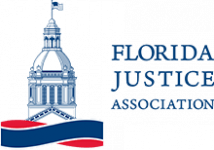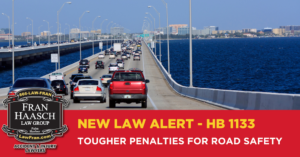There are many things to think about when you’re getting a motorcycle. You have to make sure you have the right gear, know how to ride safely, and have the right motorcycle insurance. Motorcycle insurance can be confusing, especially if you’ve never had it before.
Does motorcycle insurance cover theft? What kind of insurance coverage do I need? This blog post will explain how motorcycle insurance works and answer these and other common questions. We’ll also provide some tips on how to get the best rates for motorcycle insurance.
The Fran Haasch Law Group has a group of attorneys who love motorcycles as much as you do. We hope you never have to deal with the terrible consequence of an accident while you’re on your bike. But if one happens due to someone else’s negligence, we’ll be here to help you obtain the money you deserve. So get in touch with us as soon as possible for a free case evaluation.
The Basics of Motorcycle Insurance
Motorcycle insurance isn’t a lot different from car insurance in a lot of ways. It will help protect you from the expenses associated with an accident that happens while you ride. Basic policies will pay for damages you cause, such as injuries and property damage. But there are other policies that will cover any injuries you suffer, or any damage to your motorcycle.
However, if you borrow a bike, or you use a different one that doesn’t have coverage, then there’s a pretty good chance you won’t be covered. So you should check with your insurance agent to see what kind of coverage – if any – will apply if you use a different motorcycle.
Do You Need Motorcycle Insurance in Florida?
Do you need it? The laws in Florida that pertain to motorcycle insurance are, let’s just say, odd. If you want to register your bike, you don’t have to provide proof of insurance. But if you’re found to have caused an accident while riding, you’ll have to have insurance coverage. If you can’t show that proof, you’ll very likely have to cover everything out of your own pocket. So, unless you have unlimited financial resources, you need to consider purchasing a motorcycle insurance policy.
What Does Motorcycle Insurance Cover?
Motorcycle insurance coverage can involve a variety of things, including medical expenses, property damage, and loss of use. Therefore, it’s important to read through your motorcycle insurance policy carefully to make sure you understand what is and isn’t covered. For example, most policies won’t cover damage caused by riding recklessly or driving under the influence.
Motorcycle Liability Insurance
Liability insurance is the most important type of motorcycle coverage. It covers bodily injury and property damage.. Like auto insurance, motorcycle bodily injury liability insurance coverage will provide money for any medical bills an accident victim incurs if you cause a wreck.
Uninsured/Underinsured Motorist Insurance
If you are in an accident with a driver who doesn’t have insurance, uninsured/underinsured motorist coverage will help pay for your damages. This type of coverage is optional, but it’s a good idea to have it if you can afford it.
Full Coverage Motorcycle Insurance: Collision Coverage and Comprehensive Coverage
Collision insurance does not include property damage liability coverage. Collision coverage pays if your motorcycle is damaged due to a collision with another vehicle or object. Comprehensive insurance will protect you from theft, fire, or vandalism. Both of these types of coverage are optional, but they can be very helpful.
Carried Contents and Personal Belongings Coverage
Many motorcycle policies also include coverage for your belongings. This can be helpful if you regularly take expensive gear with you on your rides. It’s important to read through your policy carefully to see what is and isn’t covered.
Roadside Assistance and Towing Insurance
Roadside assistance and towing insurance can be helpful if your motorcycle breaks down or you get stuck in a remote area. This type of coverage is optional, but it can be a lifesaver if you need it.
How Much Does Motorcycle Insurance Cost?
The cost of motorcycle insurance will vary depending on a number of factors, including your age, the type of bike you own, and your driving history. However, on average, motorcycle insurance costs about $200 per year. You can get lower rates by increasing your deductible and by taking safety courses.
Can I Purchase Personal Injury Protection Coverage for a Motorcycle?
Unfortunately, no. Personal injury protection (PIP) coverage does not apply to motorcycles in Florida. It covers all four-wheel vehicles, but not two-wheel vehicles.
Tips for Getting the Best Rates on Motorcycle Insurance
– Increase your deductible: This will make your policy less expensive overall.
– Take a safety course: Many insurers offer discounts to drivers who have taken a motorcycle safety course.
– Shop around: Don’t just go with the first insurer you come across – compare rates from several different companies to find the best deal.
– Maintain a good driving history: Insurers often give discounts to drivers who have a clean driving record.
– Own a motorcycle that is less expensive to insure: Some bikes are more expensive to insure than others. If you can, try to find one that is cheaper to cover.
What to Do if You’re in a Motorcycle Accident
If you’re in a motorcycle accident, it’s important to stay calm and take action. Here are some steps to follow:
– Call the police: This is especially important if there is any damage or injuries. The police will create an accident report that can be used later in court.
– Get information from the other driver: Make sure to get the driver’s name, contact information, and insurance information.
– Take pictures of the scene: Photos can help document what happened and be used as evidence later on.
– Contact your insurance company: Let them know what happened and start the claims process.
Motorcycle accidents can be serious – but by following these steps, you can make sure you’re prepared for anything that comes your way. Remember that The Fran Haasch Law Group will be here if you need us. Contact us for a free case evaluation if you’ve been hurt in an accident caused by another motorist’s negligence.













